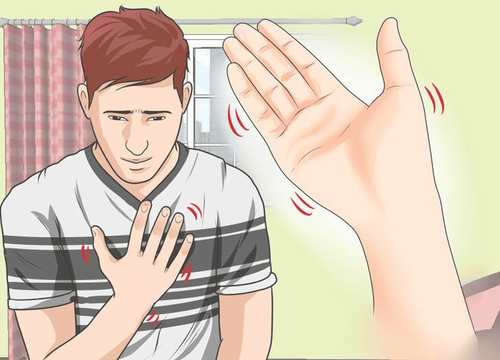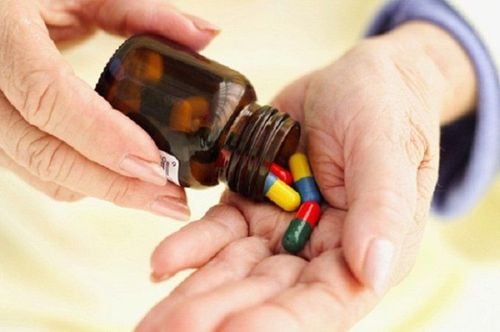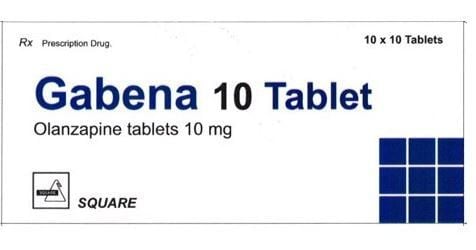This is an automatically translated article.
Depression in children is a mood disorder that causes persistent feelings of sadness and loss of interest. Depression affects the way a child feels, thinks, and behaves, which can lead to physical and mental problems.1. Common depressive disorders in children
Depressive disorders in children include: mixed depressive disorder, major depressive disorder, mood disorder.1.1 Mixed Mood Disorder A mood disorder is a disorder that involves persistent irritability and frequent episodes of behavior that are difficult to control, usually between the ages of 6-10. Many children have other disorders, especially oppositionalism, opposition, hyperactivity, attention deficit hyperactivity disorder, or anxiety disorders.
Manifestations include frequent episodes of severe arousal (eg, anger or hurtful behavior towards others...) with a high frequency of more than 3 times/week. Outbursts are not appropriate for the situation, a state of irritability, anger is present every day.
1.2 Major depressive disorder Major depressive disorder is a form of depression that lasts more than 2 weeks. Major depressive disorder occurs at any age but is more common after puberty with several manifestations:
Feeling sad or other people observing sadness (eg, tears) or irritability. The child will lose interest or enjoyment in most activities (often expressed as boredom) lose weight (not gain weight as expected); Decreased or increased appetite; Insomnia or migraines; Agitation or mental retardation; Fatigue or loss of energy; Reduced ability to think, focus and choose; Persistent thoughts of death (not just fear of death) or suicidal ideas or plans; Feelings of worthlessness (ie, feeling rejected and unloved)... Risk of relapse is high for children with major depressive episodes. 1.3 Mood disorders Tinnitus is a persistent state of depression or anger that lasts for a long time and manifests itself as: loss of appetite or overeating; insomnia or migraines; decreased energy or fatigue; poor concentration; feelings of despair; vulnerable to abuse...
Compared with major depressive disorders, this symptom may be less. The average duration is about 5 years. A major depressive episode may occur before onset or during the first year.
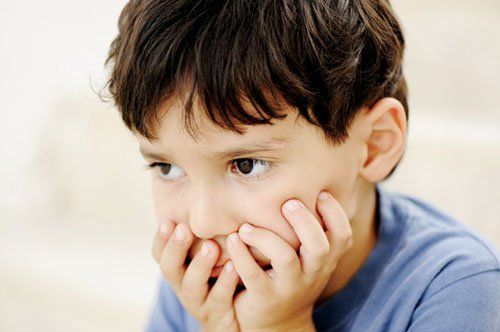
Chứng ù tai là trạng thái trầm cảm hoặc tức giận dai dẳng kéo dài
2. Signs of depression in children
Manifestations of depression in children also have other characteristics compared with depression in adults, which are:Often expressed by physical symptoms, but pain is the most commonly mentioned symptom. Children often have headaches, abdominal pain, chest pain, stuffiness, and feelings of anxiety and depression. Because of the prominent physical symptoms, for mild depression, these types are often not treated. early diagnosis and, of course, no treatment. In most of these cases, the parents take them to the internal pediatric facilities for medical examination and treatment with cardiovascular, digestive, neurological, etc., and are treated with drugs. specific specialist but failed to find results, or found no obvious physical injury.
Low mood: The child has a feeling of sadness that is unclear, unexplained, or irritable, decreased interest in learning, assigned work, and also in group or group activities.
Thinking: Difficulty paying attention, difficult to absorb in learning, reduced learning results. This process can happen slowly or quickly, this is also an important reason why parents bring their children to medical facilities or psychological counseling. Others feel excited, see their ability to excel, children study hard, the initial results are good, but then the results are markedly reduced.
Social activities: The child withdraws, isolates himself, does not want to communicate or participate in social activities, complains that he does not have close friends or is difficult to share with friends. Children are apathetic, less interested in activities going on around them, towards those around them, maybe even those closest to them. Manifestations vary to varying degrees, from lack of enthusiasm to lethargy. Others join a group of friends to share and empathize, some dive into learning, but some refuse to do everything.
Eating disorders: Often prominent is anorexia, no interest in eating, loss of appetite, as a result, the child loses weight. However, there are cases where eating more than usual or binge eating leads to weight gain.
Sleep disorders, children sleep more or sleep less than usual, in many cases children often have nightmares. It can be expressed that the child lies a lot but has insomnia, often complains of difficulty in falling asleep or sleep quality is reduced, or wakes up in the middle of the night, gets up early...
Behavioral disorders: Accompanied with emotional symptoms, the body is the manifestation of behavioral disorders, such as disruptive behavior, antisocial behavior, opposition to parents, truancy, theft, gangs or bad friends.
Suicide is also a very important and serious symptom of childhood depression, varying in severity from suicidal ideation to suicidal behavior. Children commit suicide by different forms such as taking drugs, banging their heads against the wall, strangling, cutting blood vessels, ... and often occurs in patients with severe depression.
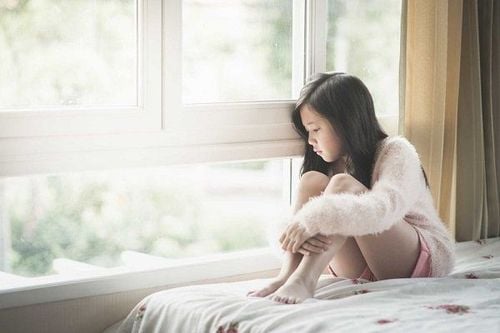
Biểu hiện trầm cảm ở trẻ cũng có những đặc điểm khác so với trầm cảm ở người lớn
3. How is depression in children treated?
Children with depression are not weak in themselves, and they do not have character defects. Children's feelings of depression are very real and cannot be expected to simply "be up." Children need treatment and their depression is treatable.When a child shows signs of depression, parents should take the child to a reputable and reliable medical facility for timely treatment.
Psychological Clinic - Vinmec International General Hospital is having the function of examining, consulting and outpatient treatment of psychological and mental health problems.
With modern equipment and a team of doctors who are lecturers in psychiatry at Hanoi Medical University, the Psychology clinic - Vinmec Times City International Hospital is capable of deploying mental tests. specialized psychotherapy and psychotherapy for medical examination and treatment.
With enthusiasm and love for the profession, the team of doctors working at the Psychological Clinic - Vinmec Times City International General Hospital always gives customers the best services with the highest service quality.
Location at Vinmec Times City:
Room 4063, 4th floor, General Internal Medicine Department
Clinic working schedule from 8:00am - 12:00pm, afternoon 13:00-17h00




